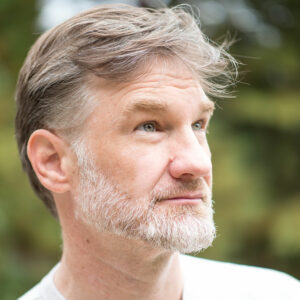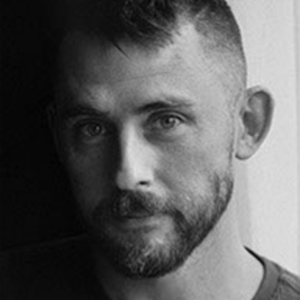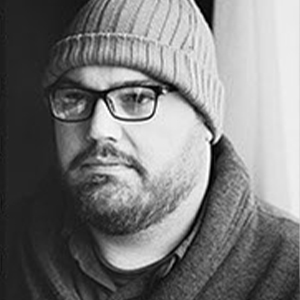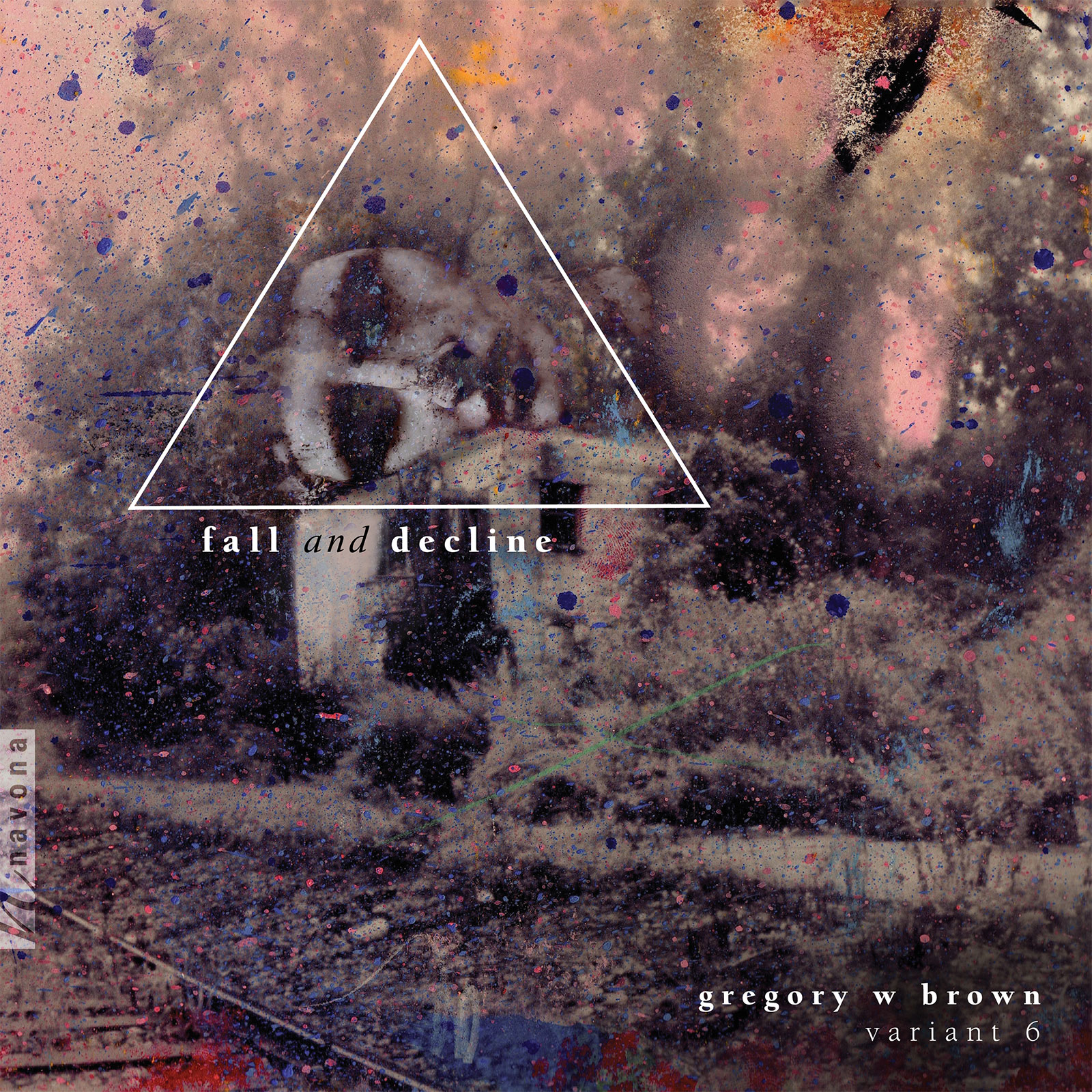Fall And Decline
Gregory W. Brown composer
Variant 6
With Gregory Brown’s FALL AND DECLINE on Navona Records, the composer chronicles the heights to which humanity can soar—but also the depths to which it may come crashing down. Scored for the solo voices of virtuosic vocal sextet Variant 6 and electronics, the sounds range from typical choral textures (though peppered with microtones) to angular and aggressive electronic soundscapes.
The lyrics may span two-and-a-half millennia, but their spirit and subjects are abiding: humankind’s struggle against the limitations of time, conflict, inevitable decay. Persian rulers of the fifth century BCE, Baroque historians, poets of the Victorian age, contemporary wordsmiths, they are all caught in a grander, timeless labor—as is every one of us. FALL AND DECLINE is a stern reminder of Humanity’s ephemerality, but even more, it’s a harbinger of hope, a celebration of creative endeavors despite perpetual adversity.
Listen
Stream/Buy
Choose your platform
"Brown seems to be mining a vein which has been somewhat dormant in contemporary music recently"
"A listening experience that is at once engaging, provocative and full of genuine surprise"
Track Listing & Credits
| # | Title | Composer | Performer | |
|---|---|---|---|---|
| 01 | I :: but after six years | Gregory W. Brown | Variant 6 | Rebecca Myers, soprano; Sarah Moyer, soprano; Elisa Sutherland, mezzo-soprano; Steven Bradshaw, tenor; James Reese, tenor; Daniel Schwartz, bass | 3:58 |
| 02 | ii :: the wine of life | Gregory W. Brown | Variant 6 | Rebecca Myers, soprano; Sarah Moyer, soprano; Elisa Sutherland, mezzo-soprano; Steven Bradshaw, tenor; James Reese, tenor; Daniel Schwartz, bass | 2:19 |
| 03 | III :: After the President’s Speech You Dream of Corpses | Gregory W. Brown | Variant 6 | Rebecca Myers, soprano; Sarah Moyer, soprano; Elisa Sutherland, mezzo-soprano; Steven Bradshaw, tenor; James Reese, tenor; Daniel Schwartz, bass | 6:24 |
| 04 | iv :: as orchards bloom again | Gregory W. Brown | Variant 6 | Rebecca Myers, soprano; Sarah Moyer, soprano; Elisa Sutherland, mezzo-soprano; Steven Bradshaw, tenor; James Reese, tenor; Daniel Schwartz, bass | 1:55 |
| 05 | V :: sixty phantoms of kings | Gregory W. Brown | Variant 6 | Rebecca Myers, soprano; Sarah Moyer, soprano; Elisa Sutherland, mezzo-soprano; Steven Bradshaw, tenor; James Reese, tenor; Daniel Schwartz, bass | 19:02 |
Composer / producer Gregory W Brown
Recorded at Breezy Acres
Photography by G. Brown
Manipulations and additions by S. Bradshaw and Nyahzul C. Blanco
Composer photo Sarah Moyer
Layout G. Brown
Engineered, produced, and edited by Charles Mueller
main pair: Soyuz Su-023 / sopranos: Coles 4038 / alto: AEA N22 / tenors: AEA N8 / bass: AEA R84A
General Manager of Audio & Sessions Jan Košulič
Audio Director Lucas Paquette
Mastering Shaun Michaud
Executive Producer Bob Lord
Executive A&R Sam Renshaw
A&R Director Brandon MacNeil
A&R Alex Halloran
VP, Design & Marketing Brett Picknell
Art Director Ryan Harrison
Design Edward A. Fleming
Publicity Patrick Niland, Sara Warner
Artist Information

Gregory W. Brown
Composer Gregory W. Brown’s works have been performed across the United States and Europe — most notably in Weill Hall at Carnegie Hall in New York City, Cadogan Hall in London, and the Kleine Zaal of the Concertgebouw in Amsterdam. His commissions for vocal ensemble New York Polyphony have been heard on American Public Media’s Performance Today, BBC Radio, Minnesota Public Radio, Kansas Public Radio, and Danish National Radio; his Missa Charles Darwin received its European debut in March 2013 at the Dinosaur Hall of Berlin’s Museum für Naturkunde.

Rebecca Myers
Soprano Rebecca Myers is a celebrated performing and recording artist who specializes in a comprehensive variety of repertoire including early, contemporary, and chamber music. Recent seasons have seen solo engagements with Seraphic Fire, Tempesta di Mare, Lyric Fest, Opera Philadelphia, Apollo’s Fire, the CalPoly Bach Festival, and Philadelphia’s Bach @ 7 series.

Sarah Moyer
Soprano Sarah Moyer’s recent solo work includes performances with the Cape Symphony Orchestra, Aspen Chamber Symphony, Bourbon Baroque, Lost Dog New Music Ensemble, Boston Modern Orchestra Project, Emmanuel Music, Mistral, and Les Bostonades.

Elisa Sutherland
Mezzo-soprano Elisa Sutherland is dedicated to detailed, stylistic interpretations of early and new music. She frequently performs with some of the top ensembles and consorts in the country, including Philadelphia’s The Crossing, New York ensembles Ekmeles, TENET Vocal Artists, Clarion Choir and New Chamber Ballet, Roomful of Teeth, Cleveland’s Apollo’s Fire, and Miami’s Seraphic Fire.

Steven Bradshaw
In addition to recording and performing with Roomful of Teeth and Ekmeles, tenor Steven Bradshaw performs with Seraphic Fire, Trinity Wall Street, and Apollo’s Fire. He is a founding member of Variant 6 and the Crossing.

James Reese
James Reese is a frequently sought soloist and collaborative musician. He makes regular appearances with Philharmonia Baroque Orchestra, American Bach Soloists, Lyric Fest, Tempesta di Mare, the Gamut Bach Ensemble, and TENET Vocal Artists, among others.

Daniel Schwartz
A Philadelphia native, Daniel Schwartz has sung with the Opera Philadelphia chorus where he has performed a number of bit roles including The Foreman in the east coast premiere of Oscar. Schwartz also sings with The Crossing, a two-time GRAMMY-winning new music choir, and has been featured as a soloist on their radio broadcasts.
Notes
The recording was funded in part by the Musical Fund Society of Philadelphia. We are grateful to the Fund for their support of Philadelphia-area arts organizations, and their commitment to the creation of new works.
The texts for FALL AND DECLINE span millennia, but the topics remain the same: hubris, fear, and inevitable decline, with a pocket of hope near the end. We begin with an account of Cambyses II, ruler of the Achaemenid Empire in what is present day Iran. His conquest of Egypt ca. 500 BCE is perhaps his most famous achievement, and is relayed here through Samuel Purchas’s 1614 volume and credited as having been “translated out of Arabike by T. Erpenius.” Through the telescoping lenses of history his story emerges and we see the heights of glory, misadventure, and then finally Cambyses is replaced by others, who in turn, fade away.
The second text is from nearly a millennium and a half later, itself seen through the lens of a 19th century Britain: The Rubáiyát of Omar Khayyam (ca. 1120) translated from Persian by Edward Fitzgerald. The poem underscores the futility of man’s ambitions against the inevitable succession of time.
American poet Todd Hearon wrote After the President’s Speech You Dream of Corpses in 2007 in the middle of the Iraq War. The stark and horror-filled imagery evokes the idiosyncratic William Blake and responds to the videos on the 24-hour news channels. He calls on the reader to place themselves within history and question their role there.
The fourth text is from Sadakichi Hartmann, a German-Japanese artist. He directly recalls the quatrains of Khayyam, and offers a hopeful note, or at least a note of acceptance, through images of sunrise and orchards—here used as symbols of rebirth.
The final text comes from Edward Gibbon’s iconic The History of the Decline and Fall of the Roman Empire (ca. 1789). Towards the end of his sprawling volumes the author ruminates on our place in history—on the sheer scale of it all, piled up around us and ahead of us.
The term “decline and fall” serves as the inspiration for the title of this work. Gibbon suggests that civilization slowly decays and then ultimately fails; Fall and Decline suggest that perhaps things don’t work that way. Perhaps the decline and decay is omnipresent and timeless. The “fall” part is perhaps the metaphoric fall from Grace, or perhaps the moment after the Big Bang, with the creation of all matter followed by slow and inevitable entropic heat death eons later. The ‘fall’ is the starting point, instead of the end.
In either case, as Yeats asserts, “Things fall apart; the centre cannot hold;” and this dance of creation in the face of decay is both futile and the best possible thing I can imagine.
This work was written and premiered in the depths of the Trump administration, recorded from the heart of the Coronavirus pandemic, and edited during the weeks surrounding the January 6, 2021 insurrection at the Capitol Building.
It is the product of its time: hope and creativity in the face of decline.
— Gregory W Brown

